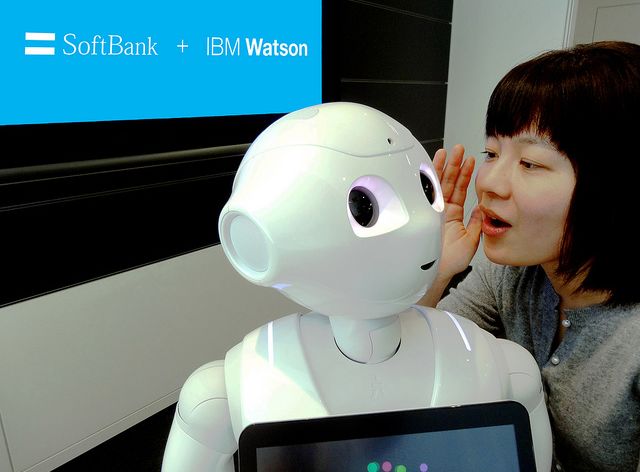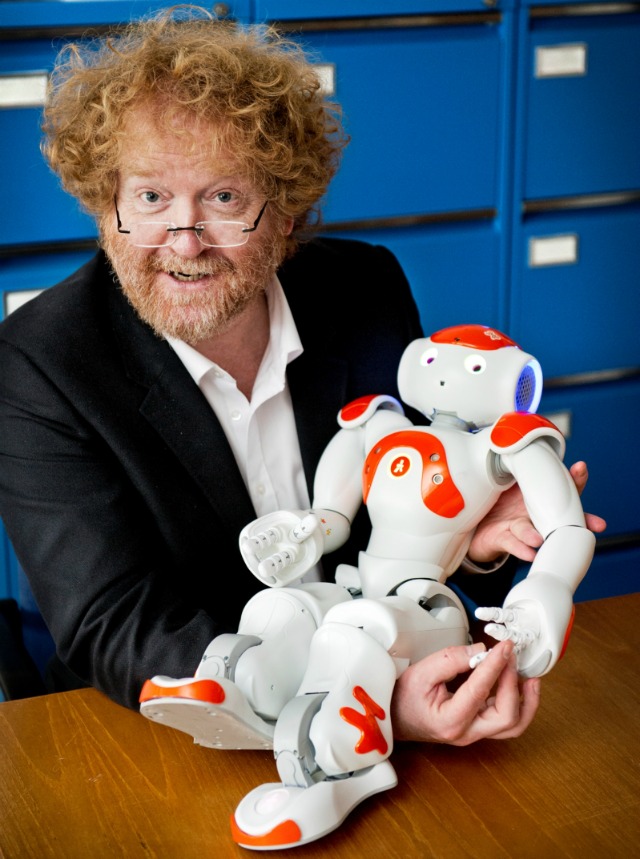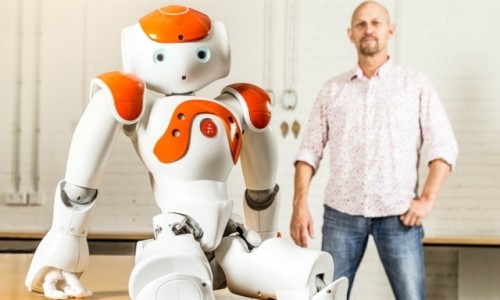Who threatens humanity: robots or humans?
-
 Foto: Ibmphoto24, Creative Commons
Foto: Ibmphoto24, Creative Commons
Some people believe that robots might eventually rule over the human race, but is that a justified fear? In a lecture professor Pim Haselager offers answers to the pressing question: do emerging artificial superintelligence technologies pose an existential threat to humanity?
World-famous scientist Stephen Hawking once warned that ‘The development of full artificial intelligence could spell the end of the human race.’ He is not alone in this opinion. He shares this view with other super thinkers, like Elon Musk and Bill Gates. But one Radboud researcher argues that we are asking the wrong question entirely.

This week, Pim Haselager of the Donders Institute and the department of Artificial Intelligence delivered a stimulating lecture, organised by Artificial Intelligence study association Cognac. He addressed the widespread fear that artificial intelligence poses specific dangers to humanity. In pondering whether an artificial superintelligence (ASI) could destroy the world, the lecturer urged the audience to consider the ways in which humans themselves are already fulfilling this prophecy. ‘Considering nuclear war, global warming, animal abuse, just the ways we treat each other – why is it we are so worried that an ASI would do these things when we are already doing them to ourselves?’
Fed up computer
Additionally, Haselager adds that our worries about a supercomputer harming us, reveal some logical flaws in our thinking. For example, most people fear that a superintelligent being could develop a sense of awareness, and then, in turn, treat us immorally. However, this is not a concern we carry in our everyday life – it only becomes perceived as a threat in an apocalyptic scenario. When our computer fulfils a task for us, we never worry that the computer is one day going to get fed up and decide we owe it something in return. Although progress is fast regarding the development of artificial intelligence, there is still a great lack of understanding about how a person, or a computer, can be aware or comes to care about values such as fairness.
Furthermore, this idea overshoots the blatant reality that we are in fact doing immoral things to each other. So why is it that we want to police the morality of an artificial superintelligence without evaluating the flaws in our own morality? As Haselager questions: ‘why are we so focused on superintelligence and not supermorality?’
While Haselager succeeded in convincing many, others still feel unnerved about the possibilities of superintelligence going rogue. The discussion organizers, first year students Felicitas Reddel and Max Kocher, are just glad people are talking about this. ‘We enjoy bringing fresh wind into the important discussion around AI Safety. And we are glad to see that many other students share our eagerness to tackle the ethical aspects of AI.’ For Haselager, the realities of human cruelty is a much scarier scenario than the unsubstantiated ill will of a super computer.

